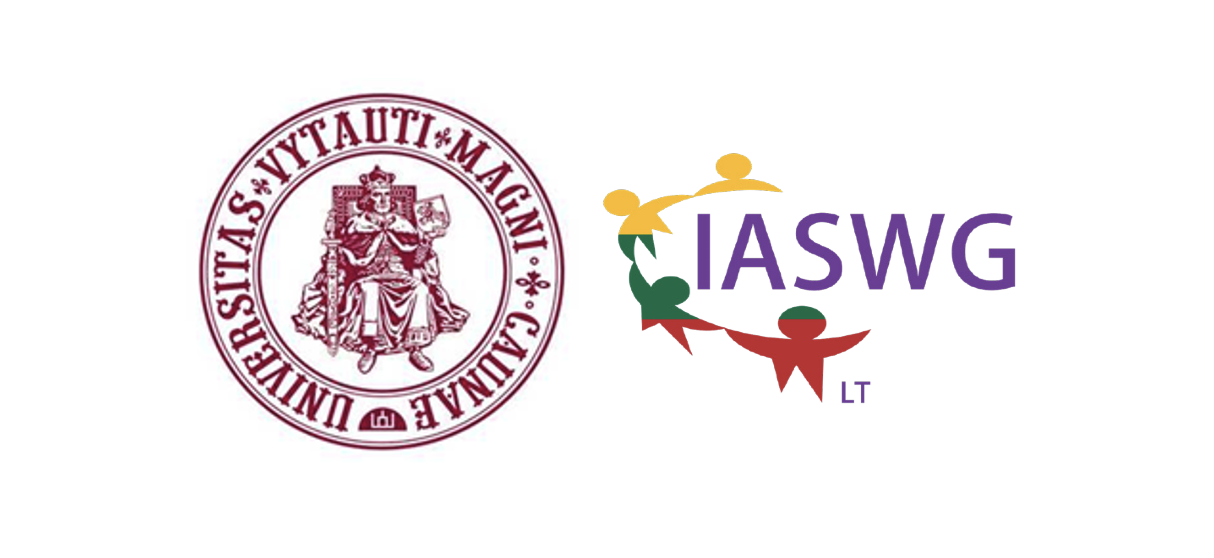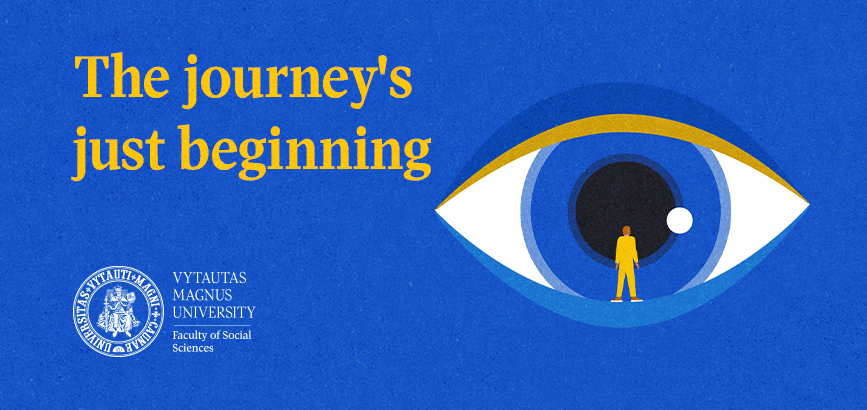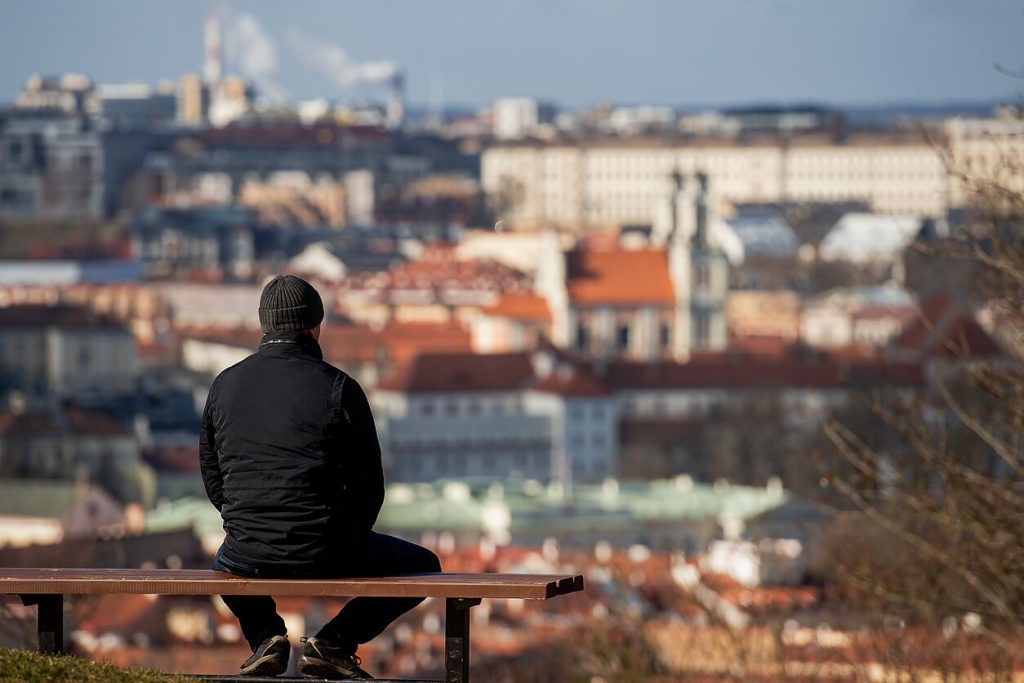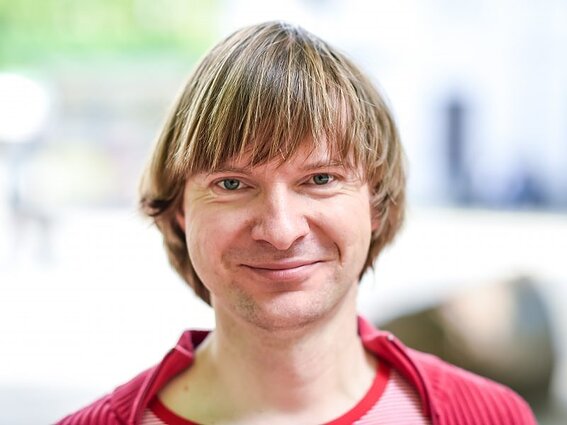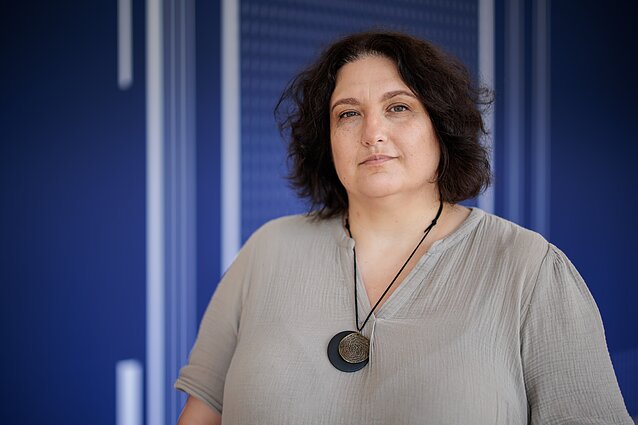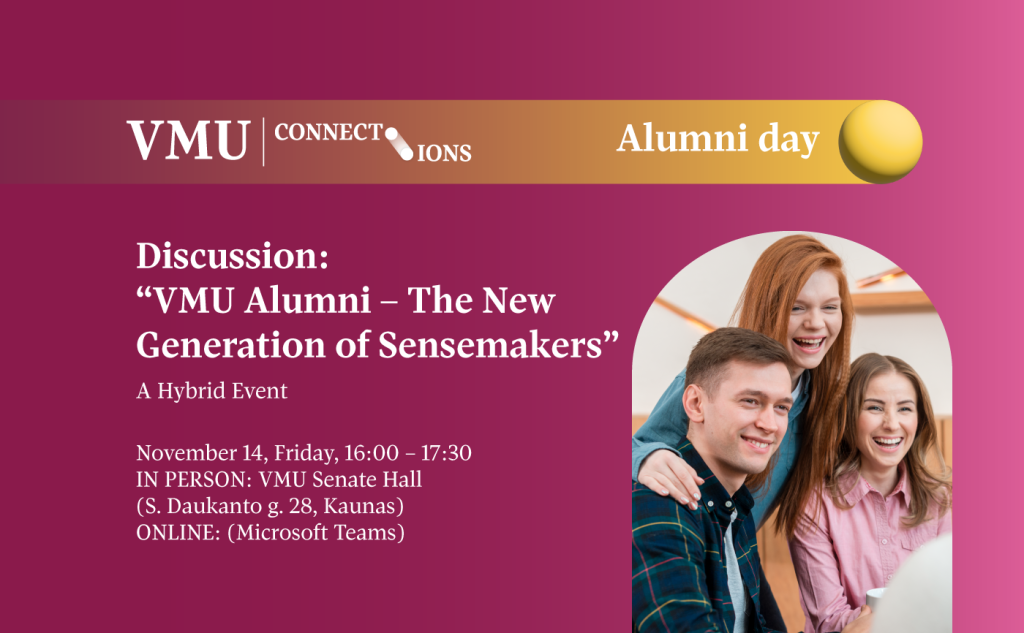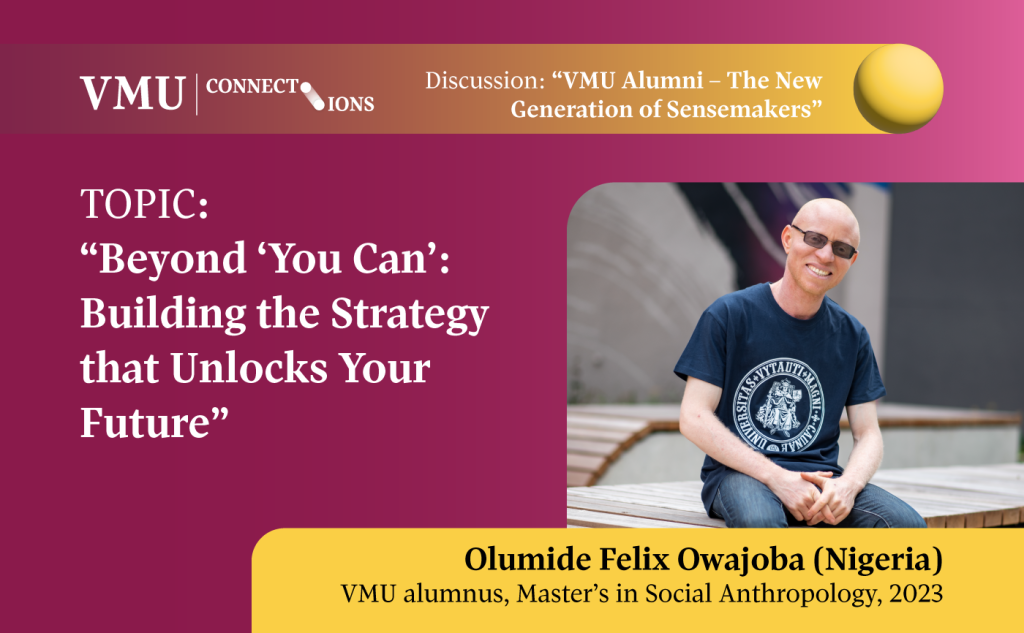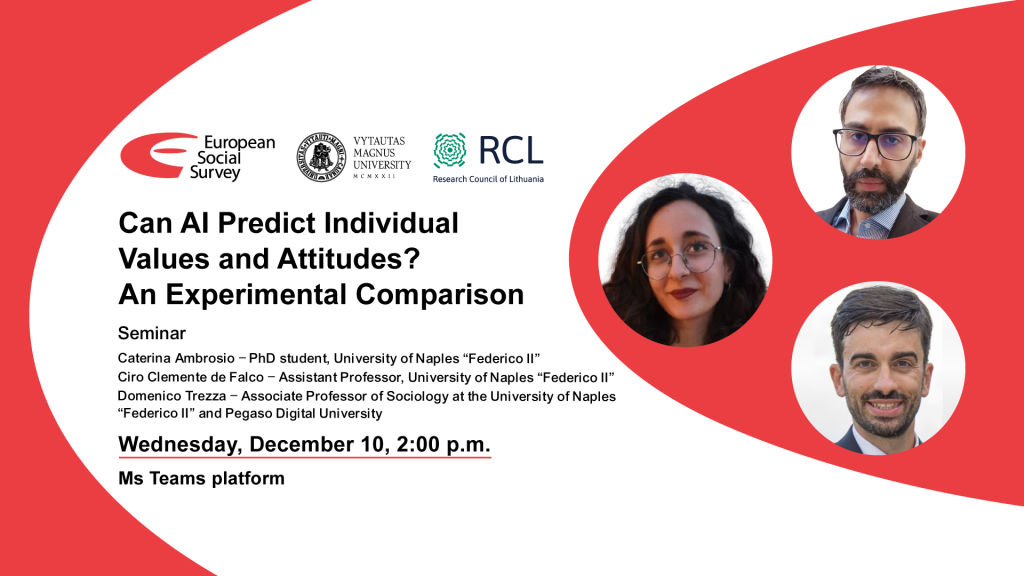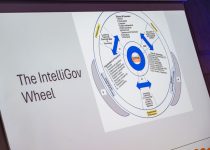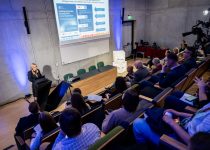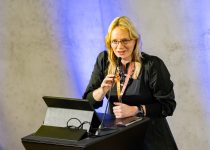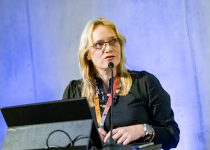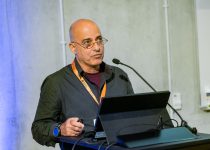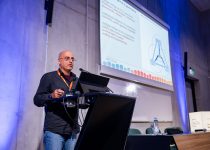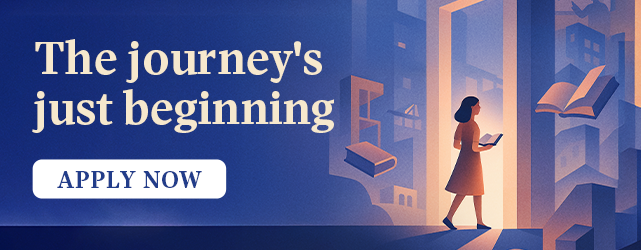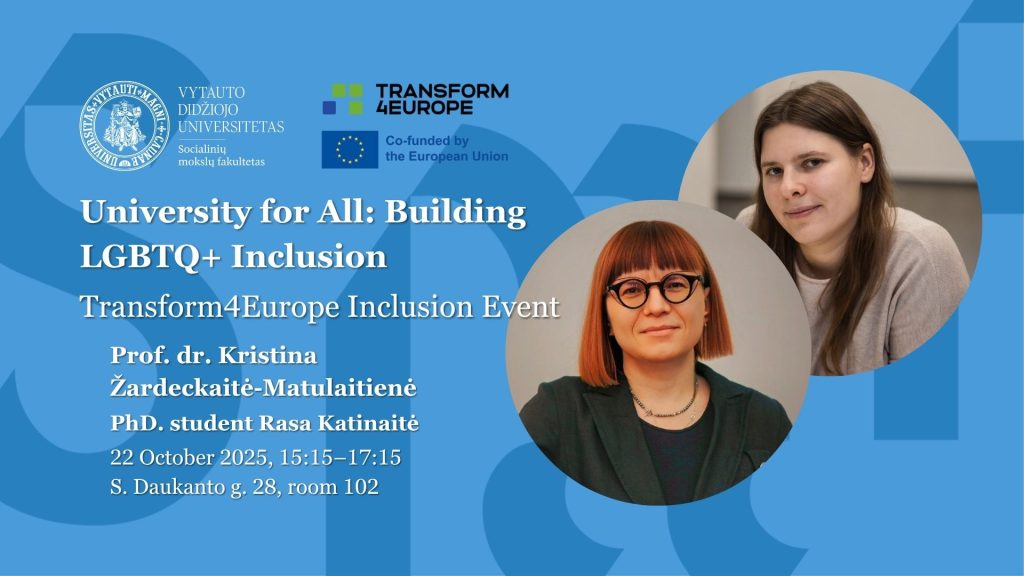Symposium: “Fragmentation of Globality: Rethinking the Legacy of Thomas Hylland Eriksen”

- 11 February, 09:00–10:20
Dr Elisabeth Schober (University of Oslo)
“The Case of Overheated Maritime Shipping: Colossal Container Ships and Today’s Fragmentation of Globality” - 12 February, 09:00–10:00
Dr Cathrine Thorleifsson (University of Oslo)
“Nationalism in an Overheating World: Authoritarian Responses to Crisis and Uncertainty”
Diploma Award Ceremony – on January 29-30!

On January 29-30, we invite graduates and all members of the community to participate in the official Diploma Award Ceremony!
The Faculty of Social Sciences graduation ceremony will take place on January 30 at 1 p.m. at the VMU great hall (S. Daukanto St. 28) The full program can be found by clicking on the link here
Best wishes to the community of the Faculty of Social Sciences at VMU!

Dear community of the Faculty of Social Sciences, we wish you holidays filled with bright thoughts, joy, and inspiring peace that will accompany you into the new year! ![]()
Psychologist access in Lithuania: easier for the high earners, a struggle for seniors
Hybrid Discussion “VMU Alumni – The New Generation of Sensemakers”
Online seminar “Can AI Predict Individual Values and Attitudes? An Experimental Comparison”
Intelligent Governance: Democratic Governance That Involves Citizens, Algorithms, and Human Sensitivity
Autumn intake for the academic year 2026-2027
Transform4Europe Inclusion Event: “University for All: Building LGBTQ+ Inclusion”
European Groupwork Camp 2025
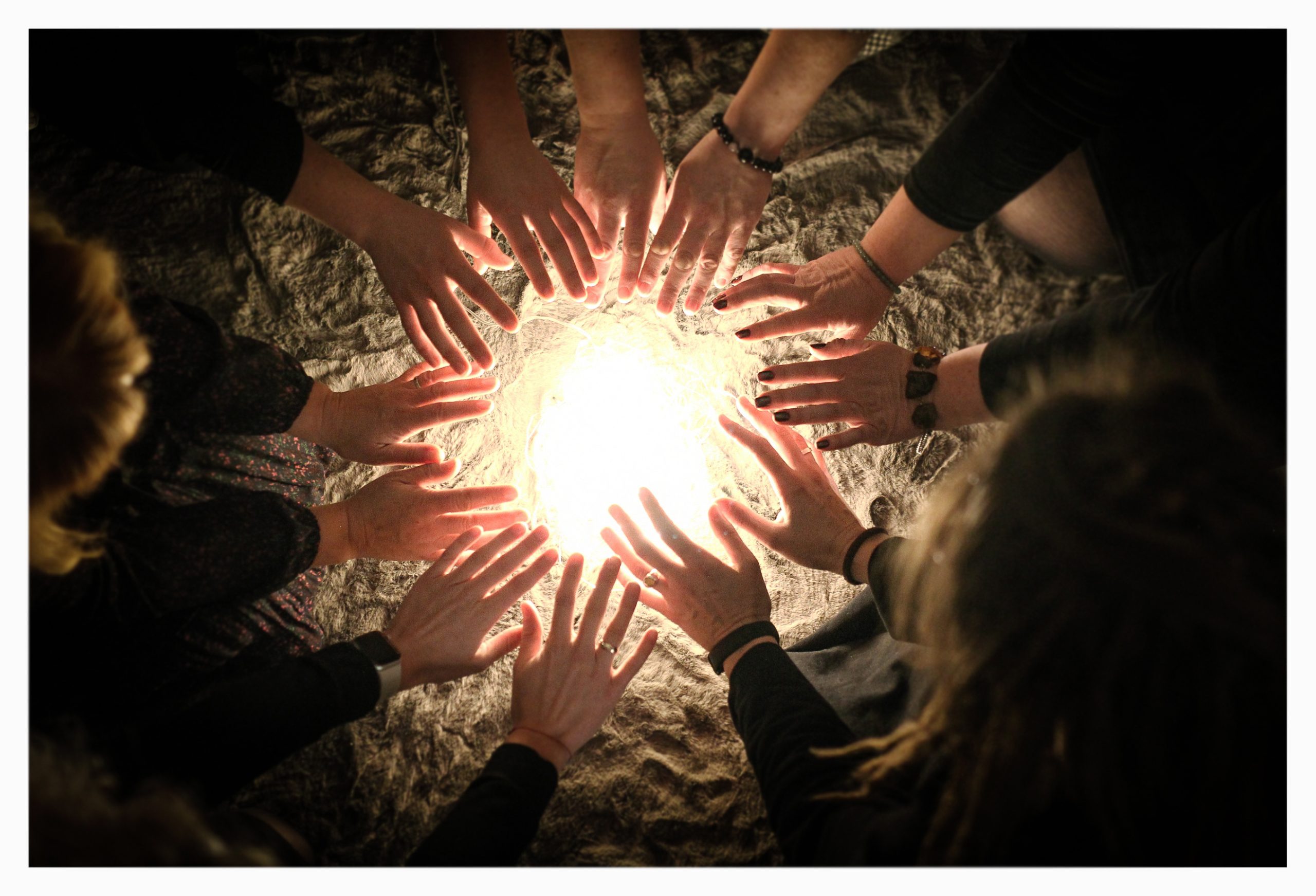
Group work for Solidarity, Hope and Change
For years the Groupwork Camp became a tradition within International Association for Social Work with Groups (IASWG), which was held in USA, Canada, UK and continental Europe. The European Groupwork Camp for the third time will take place in Lithuania and will be organized by the Lithuanian chapter (NSDGA) together with IASWG and the Department of Social Work, Vytautas Magnus University.
This unique event offers an opportunity for professional social workers, social pedagogues, psychologists and other professionals interested in groups, researches and students to share their ideas, skills, and experience.
The aim of Groupwork Camp 2025 is to foster personal growth, professional skills, and a sense of belonging through immersive group experiences in a supportive environment. By engaging in creative, reflective, and collaborative activities, participants strengthen trust, resilience, and their capacity to work effectively with groups. As experience from other groupwork camps shows, the remarkable atmosphere contributes to creating a space for multifaceted communication and recognition of different cultures.
The Groupwork Camp team invites you to step out of your daily routine into an inspiring space where you’ll grow both personally and professionally.
Come together. Share hope. Create change.
We warmly invite you to go on this journey of experiences together!
Workshop facilitators: Joint team of foreign and Lithuanian lecturers.
Location: The Groupwork Camp will be organized in Trakai district’s rural area, near the lake in Hotel „Margis”, Ežero st. 39, Penkininkų villiage., Trakai region municipality. Registration deadline: 10th of September
Registration: https://docs.google.com/forms/d/e/1FAIpQLSdYYPNP9kfQWV74hjJ2NY3AdFFbhAnv0A4ZC7yh0xVXCwEO5Q/viewform
Registration rate: 300 EUR till 15th of July, later – 350 EUR.
The registration fee will cover the following costs: admission to the full programme, accommodation, and food. Registration is confirmed upon receipt of the participation fee.
Camp participation fee details:
- VsĮ “Nacionaline socialinio darbo su grupėmis asociacija” (NSDGA).
- Company code.: 304071040
- SEB bank 70440
- Account Nr.: LT147044060008038818AB
Certificates for the participants will be issued.
For questions and detailed information please con-tact: info@nsdga.lt
